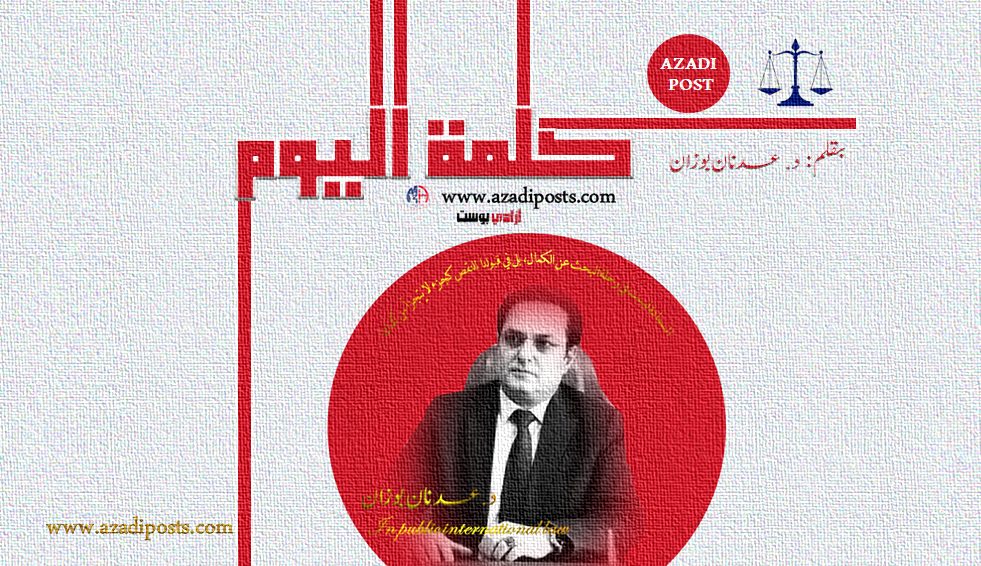
By Dr. Adnan Bozan
Eid... that ghost that returns every year, repeating itself like a dull theatrical script, soulless and lifeless, a shiny facade that conceals behind it the pain of misery and the exploitation of self and others. You ask me: What do you hate? I answer without hesitation: I hate the mind... the confined mind of the peasant, that mind which only thinks of serving narrow interests, a mind enslaved by its desires, a mind living on repetition and stagnation, reproducing backwardness and mercilessly rewarding ignorance on every occasion.
Eid... an annual scene on the stage of time, where the lights of deception and falsification dance, and the rich rejoice like knights on the backs of the shiny steeds of extravagance, exchanging “Kitbahi” — luxurious meats that the mouths of the hungry never taste, but are distributed as rewards of hypocrisy within the elite circle, sticking masks of triviality and camouflage on faces. Eid was never for them a time of giving or mercy, but rather a time to consolidate their wealth and play their own celebrations of lies.
Eid... a festival for the rich, the liars, and the hypocrites, a date where colors dance over the stage of a fake theater, while the truth rots in the background in deadly silence. The rich celebrate their wealth and exploitation of the weak poor; they do not distribute sacrifices to the poor, but to their exploitative class, throwing bones to the poor as a donation hidden under the veil of mercy—one of the cruelest forms of injustice dressed in its finest attire. The liars build excuses to wash their ugly faces, and the hypocrites wrap their deceit in masks of false sincerity, betraying those around them day after day.
As for religions? They have become commodities in the markets of merchants, brokers, and profiteers. Their hands intertwine with power to weave sects that resemble only themselves, and rituals aimed solely at strengthening the status of their followers at the expense of the weak human. In this context, Eid is nothing but a grand theatrical commercial show, selling illusion and false reassurance, wrapping social and material conflicts in a halo of sanctity that paralyzes critical thinking and keeps souls captive.
As for the poor... Oh, what people their souls are crushed on this day! They have nothing but the bread of air and worship drowned in darkness. Eid means to them nothing but unconscious rituals, prayers repeated by their lips without understanding, and faith nourished by fear of the unknown rather than by the light of awareness and knowledge. They are prisoners of an Eid that does not celebrate them but celebrates over them, between the forgotten sacrifice and the usurped joy.
In this scene, Eid becomes neither a time of joy nor a spiritual revival, but a painful station that exposes the faces of social injustice, strips away class conflicts, and reveals the hypocrisy of religions that have turned from beacons of the spirit to tools of rule and exploitation. Eid is a repeated image of our contradictions, a mirror reflecting the ugliness of our minds and our fractured societies.
Therefore, I do not celebrate Eid, but I celebrate resisting it; resisting the mind polluted by ignorance and hypocrisy, resisting the rituals that carry nothing but the continuation of exploitation, resisting surrender to absurdities that distance humans from their true humanity. Eid, when understood with this depth, becomes a revolutionary call against all forms of social, political, and religious deception.
Let the revolution be the true Eid — the Eid of liberation from chains, the Eid of the human awakened to himself, the Eid of the right to a free and dignified life.